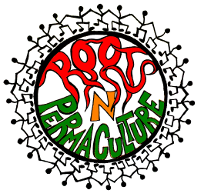Sociocracy (aka dynamic governance) is a system of governance, using consent-based decision making and an organisational structure based on cybernetic principles. Sociocracy was developed as a new method of governing businesses, but it has also been adopted in many different kinds of public, private, non-profit, and community organisations as well as in professional associations.
Consent, as defined and practised in sociocratic organisations, is claimed to be a more efficient and effective decision-making method than autocratic decision-making because it protects the ability of each member and unit of an organisation to work toward the aim effectively. In the end, this decision-making method builds trust and understanding, even though its objective is to reduce friction and facilitate effective action. The consent process educates the participants about the needs of the other members in doing their work effectively.
Sociocracy was invented in The Netherlands and has been practised for almost 100 years, but is now fast becoming the tool of choice for collaborative working throughout the world.
Rootsman Rak has developed an adapted version along years of experience, his students came up with a new word “Rakocracy”.
To get a feeling of what Rakocracy is, here’s a video about the difference between meetings:
The well-defined, information-based, and highly disciplined decision-making process helps organisations stay focused and move swiftly through examining an issue and making decisions. The feedback structure between circles and the involvement of all members of the organisation in the policymaking process ensures a united organisation.
Sociocratic principles are now applied around the world in corporations, small businesses, nursing homes, colleges, ecovillages and cohousing communities, religious organisations, private schools, and international professional and educational membership organisations.
More information will be available soon, find out more about this perfect complimentary edge with Permaculture.
